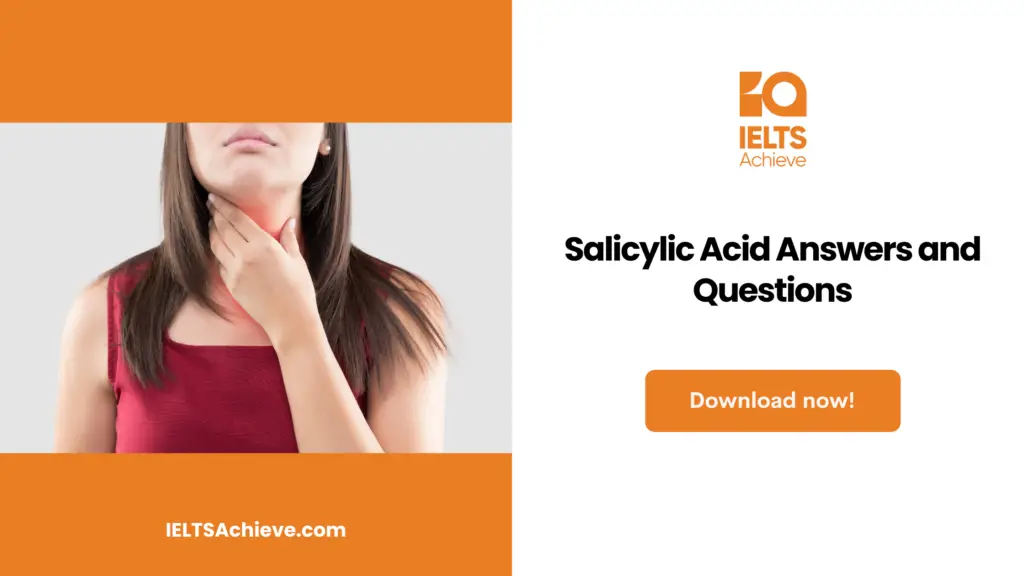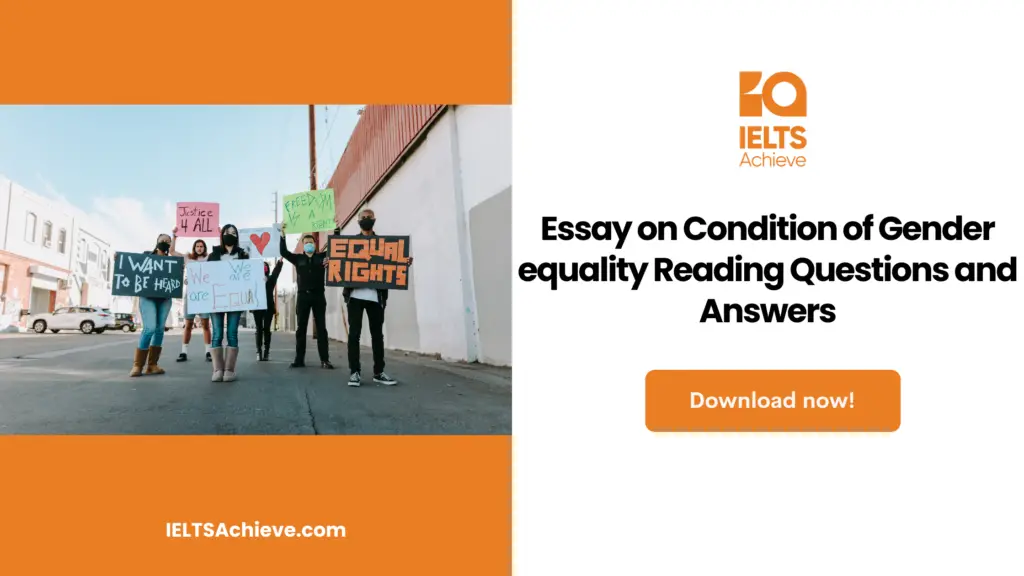The Blog post contains the following IELTS Reading Questions:
- IELTS Reading Multiple choice question
- IELTS Reading Sentence completion
- IELTS Reading True/False/Not given
Stay informed and prepared for success – Explore our comprehensive Reading Test Info page to get valuable insights, exam format details, and expert tips for mastering the IELTS Reading section.

IELTS reading passage – A Library at your fingertips
You should spend about 20 minutes on Questions 1-14 which are based on Reading Passage 1 below.
After you’ve attempted all of the questions, review your answers using the provided.
A Library at Your Fingertips reading answers
A. A publishing revolution, in which the printed word will be replaced by the computer screen, was widely predicted during the height of the dot-com bubble a few years ago. It wasn’t, and the sensation of losing oneself in a book for an hour or two is still highly valued by many. In recent times, major tech companies like Google, Amazon, Microsoft, and Yahoo! have been quite active, showing that the dream of providing books online is still alive.
B. The controversial subject of digitizing thousands of print volumes. The first books on Google Print were made available to the public on November 3, 2015, after the idea had been debated for almost a year. Together, Google and several of the world’s best research libraries are working to offer tens of thousands of books freely searchable and readable online. Publishers are upset by the decision, even though the works featured so far are not subject to copyright protection.
C. Five major publishing houses have filed a lawsuit against Google, alleging that the search engine infringed upon their copyright by distributing digital copies of out-of-print publications. There is skepticism among publishers over Google’s promises that it will only publish minimal snippets of protected work without permission. Ironically, many publishers are collaborating with Google on a different venture called Google Print Publisher to provide consumers with a taste of commercially accessible books online. The indexed library’s description and snippets are provided to entice readers to buy the complete works in digital or print formats.
D. In retaliation, the world’s largest online retailer, Amazon, has declared its intentions to compete in the mass market for e-books. Since its inception as an online bookshop a decade ago, the company has expanded greatly. On Thursday, Amazon announced the debut of two new services, possibly in response to Google’s expansion into Amazon’s traditional market. With Amazon Pages, customers can conduct keyword searches within books, buy individual chapters or sections, and read them online in their entirety. Thanks to Amazon Upgrade, customers who have already purchased a physical copy of a book can access it digitally. Customers should expect to pay around five cents per page, the vast bulk of which will go to the publisher.
E. In recent years, Microsoft has joined the ranks of those who offer books via the internet. The software company announced at the end of October that it would spend around $200 million digitizing manuscripts, starting with 150,000 that are in the public domain, to avoid legal complications. That will be carried out in conjunction with the Open Content Alliance, a group of educational institutions. (Yahoo! has also promised the same group that they will make 18,000 books available through their service.) Microsoft announced a cooperation with the British Library, the country’s principal reference library, on Thursday, the same day that Google and Amazon revealed their plans to digitize some 25 million pages. The next MSN Book Search will make these available to users.
F. Businesses are anticipating an uptick in sales of electronic books similar to that which followed the online-only release of Stephen King’s “Riding the Bullet” in the year 2000. Two days following its release, half a million copies were downloaded. This was not a portent of things to come; instead, it set a new benchmark. As consumers were reluctant to read the latest bestsellers while seated in front of a computer screen, e-book reading devices struggled to gain traction in the market. Barnes & Noble, the behemoth American bookseller, made a great deal out of selling e-books in the year 2000, but quietly stopped doing so in 2003 when demand began to wane.
G. The e-book industry is slowly but surely exhibiting signs of recovery, albeit from a low starting point. According to the International Digital Publishing Forum, which aggregates data from several of the world’s largest publishers, sales grew 25% worldwide in the third quarter of 2004. The publishing industry as a whole made almost $100 billion that year, yet only 23 companies split $3.2 million.
H. Stores and publishers are confident in their long-term ability to persuade customers to consume more of their content in digital formats. Several people have speculated that they will eventually become as commonplace as Apple’s iTunes. When comparing fiction and funk, there are obvious differences. The online music industry has been driven from the bottom up, with legal providers confident that more and more consumers will pay small sums for music rather than remain beyond the law, with the transition from illegal file sharing services to legal firms when the pirates were forced (by a wave of lawsuits) to retreat. Portable music players, such as the iPod, have become a popular and hip substitute for home stereos. Nothing else like it exists in written form.
I. As a result, selling books online is not a particularly lucrative business right now. It’s possible that some fresh thinking could help them out. Some clients may be enticed to purchase if they can download only a small sample of a book; for example, students may want to download just the relevant sections of course materials, and readers may want to have a taste of a book before purchasing the full version. Offering downloadable content for today’s ubiquitous mobile phones and tablets may also be appealing. Despite this growth, it is anticipated that the value of electronic publications (mostly manga comic books) distributed to mobile phones in Japan will only reach around 6 billion ($51 million) in 2005.
A library at your fingertips IELTS reading questions
Questions 1-5
Do the following statements agree with the views of the writer in Reading Passage 1?
In boxes 1-5 on your answer sheet, write TRUE if the information in the text agrees with the statement
FALSE if the information in the text contradicts the statement.
NOT GIVEN if there is no information on this
1. Amazon was originally an electronic bookseller.
2. The day that Microsoft inked their deal with the British Library also saw announcements from Google and Amazon.
3. The book Riding the Bullet is now available online at Barnes & Noble.
4. It’s conceivable that book sales would rise if customers could read a sample online before buying.
5. The law doesn’t protect books that are no longer in print.
Enhance your skills in identifying information as True, False, or Not Given. Click here to discover expert strategies and techniques for mastering this question type in the IELTS Reading section.
Questions 6-10
Complete the following sentences using NO MORE THAN THREE WORDS from the text for each chapter
6. The ______ has nothing in common with an iPod.
7. ____________ is the place where most of the mobile phones are sent off to.
8. Companies avoid _________ by publishing books online that are not protected by copyright.
9. The ______ is small at first, but it is growing.
10. The ______ believes they will be able to persuade more people to read online.
Enhance your sentence completion skills in the IELTS Reading section. Click here to access our comprehensive guide and learn effective strategies for filling in missing words or phrases in sentences.
Questions 11-14
For each question, only one of the choices is correct. Write the corresponding letter in the appropriate box on your answer sheet.
11. Amazon will
A.Distribute the kinds of books that were Google’s exclusive online purveyor until now.
B.Acquire the rights to sell many of the books it currently offers in its online store.
C. Having the option to purchase individual chapters from a book would be convenient for many readers.
12. Most readers, when given the option, favor
A.‘Paper’ books.
B.Reading from computer monitors
C.Using specialized ebook readers.
13. Before the last few years, it was widely believed that
A. Consequently, fewer printed books would be read.
B. Insolvency would be the conclusion for companies such as Amazon.
C. The period of the dot-com boom was rapidly ending.
14. Many publishers are unhappy with Google
A. because the company only posts short snippets of books rather than the entire works.
B. According to them, Google has broken copyright laws.
C. Google cooperates with academic libraries.
Unlock your full potential in the IELTS Reading section – Visit our IELTS Reading Practice Question Answer page now!
Recommended Questions:
Renewable Energy IELTS Reading Question with Answer
A library at your fingertips reading answers with explanations
1. Answer: TRUE
2. Answer: FALSE
3. Answer: NOT GIVEN
4. Answer: TRUE
5. Answer: FALSE
6. Answer: Book world
7. Answer: Manga comic books
8. Answer: Legal problems
9. Answer: The market for e-books
10. Answer: Retailers and publishers
11. Answer: C
12. Answer: A
13. Answer: B
14. Answer: A

